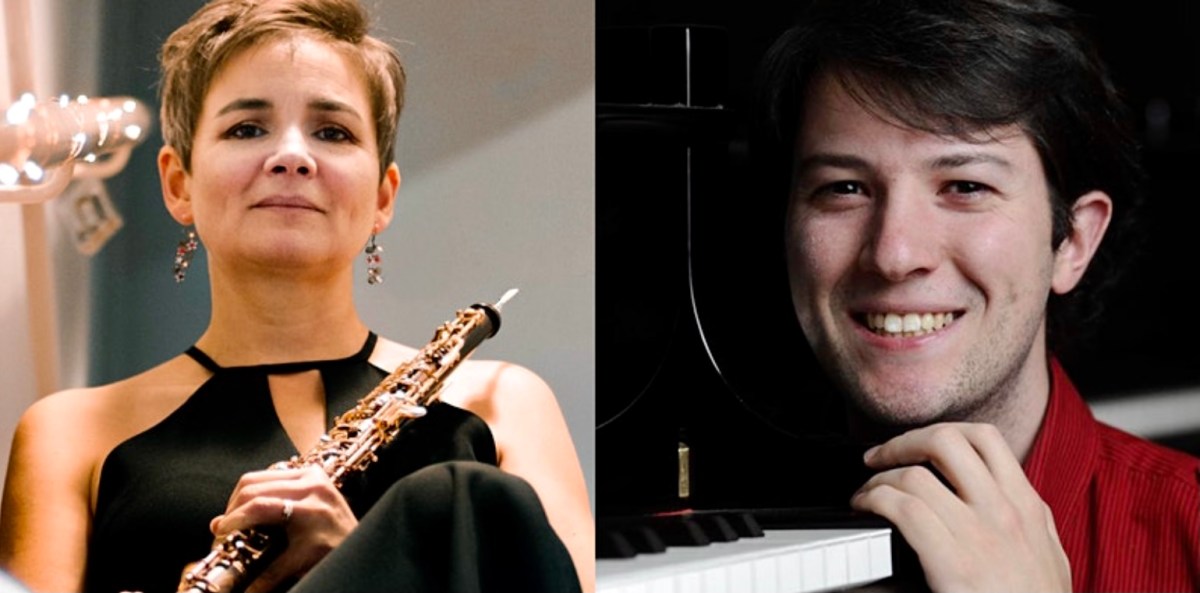Australian audiences should be so proud of the sterling work Musica Viva does to present the very best in chamber music. This concert, at the Adelaide Town Hall, was to have featured a recital by the Brisbane-based Ensemble Q; however the persistent COVID-induced travel restrictions meant that was not to be. But that disappointment led to a new opportunity, and Musica Viva quickly put together a marvellous program of French music with four distinguished local players.
Warmly introduced by Musica Viva’s State Manager for SA, Emily Kelly, the recital featured Celia Craig on oboe, Dean Newcomb on clarinet, Mark Gaydon on bassoon, and pianist Michael Ierace.
Newcomb and Gaydon are principal players with the Adelaide Symphony Orchestra, Ierace is with the Elder Conservatorium, and Craig has a long musical CV including recordings and residencies. She was also formerly a principal with the ASO and has performed for Royalty, so the Adelaide audience was in for a treat.
Read: Theatre review: Unbound, Blank Space Productions, WA
The program showcased seven short works, written between 1889 and 1972, each with its own distinctive character. After a few words from Craig, the three winds opened with the Divertissement by Jean Françaix. Composed in 1947, there was a delightful energy to the four movements. The carnival-like theme in the Prelude and Scherzo no doubt echoed the exultation of the immediate post-war period in continental Europe.
Next came the beautiful Oboe Sonata in D Major by Camille Saint-Saens, written at the end of the composer’s life in 1921, and given an exquisite reading by Craig and Ierace on piano. Introducing the piece, Craig spoke of her synaesthesia, a neurological condition which means she sees musical sounds as colours. The Sonata was described in hues of gold, royal blue, and silver.
The recital continued with two pieces by Francis Poulenc, the Sonata for clarinet and bassoon and the Trio for oboe, bassoon and piano; a very unusual work by Paul Pierné known as the Bucolique Variations, again from 1947; and an Australian premiere live performance (or so we think…) of the Sonata Champėtre written by the female composer Germaine Tailleferre in 1972.
The absolute highlight for me came in the middle of the program with two pieces for piano by Erik Satie, composer of the much-loved Gymnopédies, whose title bears images of tussling naked Spartans.
Satie was a bohemian and something of an eccentric, in music and in life. He played piano in the cabaret bars of Montmartre and composed music with idiosyncratic directions such as ‘play light as an egg’ and ‘without pride’. At just four minutes each, the Gnossiennes no 3 and Sonatine bureaucratique are astonishingly good. And in case you’re wondering about the meaning of that wonderful word ‘gnossiennes’, don’t worry – it wasn’t a word until Satie invented it!
These have long been some of my favourite pieces, so hearing them in recital was a real treat. The clarity and intricacy of Ierace’s pianism was superb, giving every note its due expression.
Throughout the program, the three wind soloists: Craig, Dean Newcomb, and Mark Gaydon, played with warm empathy and precise synchronicity. The recital was a delightful degustation of French works that were each individually charming and together made a satisfying program.
Musica Viva Australia
Adelaide Town Hall
Thursday 26 August 2021
The next Musica Viva Australia performance at Adelaide Town Hall is on 22 September 2021




